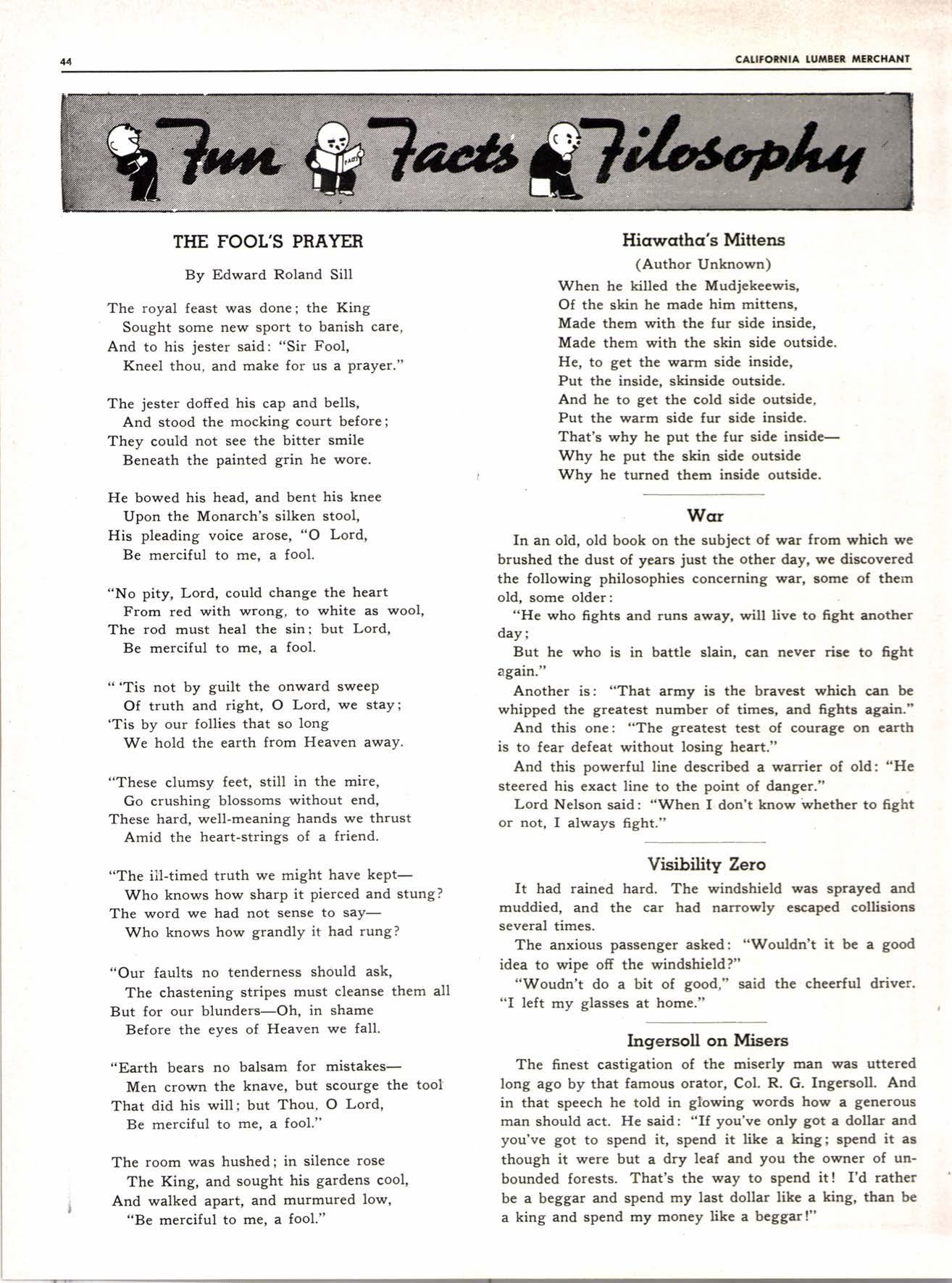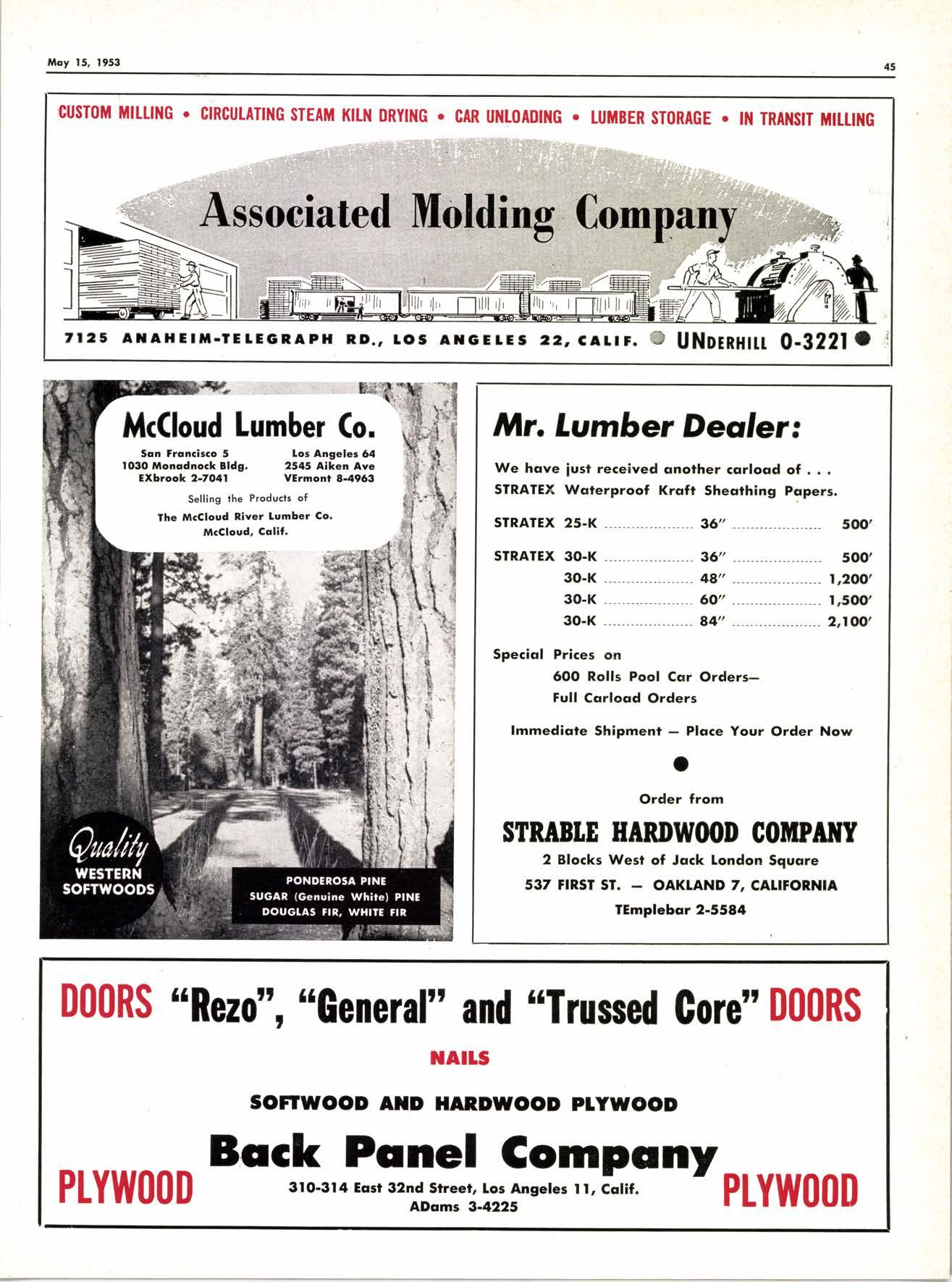
2 minute read
TTIE FOOL'S PRAYER
By Edward Roland Sill
The royal feast was done; the King Sought some new sport to banish care, And to his jester said: "Sir Fool, Kneel thou, and make for us a prayer."
The jester doffed his cap and bells, And stood the mocking court before; They could not see the bitter smile Beneath the painted grin he wore.
He bowed his head, and bent his knee Upon the Monarch's silken stool, His pleading voice arose, "O Lord, Be merciful to me. a fool.
"No pity, Lord, could change the heart From red with wrong, to white as wool, The rod must heal the sin; but Lord, Be merciful to me, a fool.
"'Tis not by guilt the onward sweep Of truth and right, O Lord, we stay; 'Tis by our follies that so long We hold the earth from Heaven away'
"These clumsy feet, still in the mire, Go crushing blossoms without end, These hard, well-meaning hands we thrust Amid the heart-strings of a friend.
"The ill-timed truth we might have keptWho knows how sharp it pierced and stung? The word we had not sense to saYWho knows how grandly it had rung?
"Our faults no tenderness should ask, The chastening stripes must cleanse them all But for our blunders-Oh. in shame Before the eyes of Heaven we fall.
"Earth bears no balsam for mistakesMen crown the knave, but scourge the tool That did his will; but Thou. O Lord, Be merciful to me. a fool."
The room was hushed; in silence rose The King, and sought his gardens cool, And walked apart, and murmured low, "Be merciful to me, a fool."
Hicrurathcr's Mittens (Author Unknown)
When he killed the Mudjekeewis, Of the skin he made him mittens, Made them with the fur side inside, Made them with the skin side outside. He, to get the warrn side inside, Put the inside, skinside outside. And he to get the cold side outside, Put the warm side fur side inside. That's why he put the fur side inside Why he put the skin side outside Why he turned them inside outside.
Wcr
In an old, old book on the subject of war from which we brushed the dust of years just the other day, we discovered the following philosophies concerning war, somc of them old, some older:
"fle who fights and runs away, will live to fight another d"y;
But he who is in battle slain, can never rise to 6ght again."
Another is: "That army is the bravest which can bc whipped the greatest number of times, and fights again."
And this one: "The greatest test of courage on earth is to fear defeat without losing heart."
And this powerful line described a warrier of old: "He steered his exact line to the point of danger."
Lord Nelson said: "\Mhen I don't know whether to 6ght or not, I always fight."
Visibility Zero
It had rained hard. The windshield was sprayed and muddied, and the car had narrowly escaped collisions several times.
The anxious passenger asked: "Wouldn't it be a good idea to wipe off the windshield?"
"Woudn't do a bit of good," said the cheerful driver. "I left my glasses at home."
Ingersoll on Misers
The finest castigation of thc miserly man was uttered long ago by that famous orator, Col. R. G. Ingersoll. And in that speech he told in glowing words how a gcnerous man should act. He said: "If you've only got a dollar and you've got to spend it, spend it like a king; spend it as though it were but a dry leaf and you the owner of unbounded forests. That's the way to spend it ! I'd rather be a beggar and spend my last dollar like a king, than be a king and spend my money like a beggar!"











